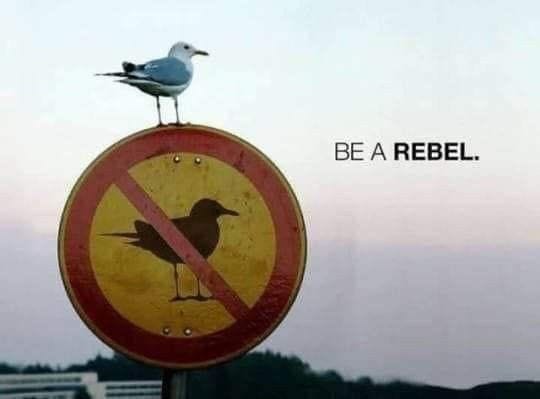Never normalize insanity
I thought I was going to be writing this Substack to satirize the insanity and the maddening bureaucracy of academia. But with everything going on in this country, and everything that’s not going on in this country, it’s hard to think beyond that. Although sometimes the insanity and the bureaucracy coincide.
I hate performative academic theater. We make constructs in academia that are like religious rituals we subject ourselves to so that we can answer ridiculous evaluative questions. Annual reviews are a fine example. Some have suggested they spend over an hour for an annual review. I would say if that happened it’s because the reviewer is talking too much, because they haven’t spoken to their faculty/staff enough during the year, or because expectations are too complicated. A former Chair of mine had expectations that could be summarized in one Rule: do the best science you can and get as much money as you can. Do the teaching and the service that are required to keep running the place but remember the first Rule. Because honestly the first rule is the only rule that matters. There was no handholding. Anyone hired into an academic position knows this is the rule. It was simple even when it wasn’t clearly articulated. It’s not a mystery that needs to be discussed or that we needed to develop a strategic plan to address.
In a recent meeting someone who was clearly in denial asked what challenges we were having in the school. I wanted to say, “You mean other than the coup of the U.S. government” or even “the tenuous existence of NIH” but I did say “government funding for research”. And the response was “Well sure, but other than that?” AYFKM?? That’s like saying “I understand events were upsetting Mrs. Lincoln, but how were you enjoying the play.”
And this is the danger of the moment. Humans have a great propensity for adaptation. But if you adapt to insanity and try to live within an insane system, nothing will change. There’s a distinction between adapting to survive in an insane system and adapting to live in an insane system. The latter implies acceptance.
I read a book by Milan Kundera years ago. He’s a Czech writer most widely known for writing the Unbearable Lightness of Being. In one scene in the book, a woman in Czechoslovakia is tending to a tomato plant while Russian tanks rumble by in the background. This was 1968, in case you think history doesn’t repeat itself, know that it does, especially when you don’t study or learn anything from history.
When the woman is asked how she can garden when there is an invasion force in the distance, the woman replies, and I’m paraphrasing, the tanks will come and the tanks will go, but I need to eat. Her perspective makes two important points. First, that Czechoslovakia had been ravaged by war through several campaigns, and it had become almost routine to inhabitants. The second was the perspective of priorities. Tiny men trying to make-up for their own inadequacies can fight over land, but the rest of us still need to eat. Almost 60 years later, we still need to eat, but also we also need to post things on the internet. I mean, priorities.
We can adapt to survive in chaos and uncertainty. But to say that chaos and uncertainty are the new normal is not helpful. It is not normal. When the system of checks and balances of our system of government are not effective, it is not normal. When the foundation of the greatest scientific enterprise in the world is cracking, it is not normal. The scientific enterprise is far from perfect, but the attack on science, as I’ve written in posts in the last few weeks, cannot be the new normal.
On the point of adaptation, a recent article highlights some of the things we should do, and some of the outcomes of the current climate. Some of the suggestions are things we should have been doing anyways – better science communication to the masses, better appreciation for those in the science community that do deeds like reviewing and mentoring out of goodwill with no potential for remuneration, preparing to use our skills in different ways. All good points, because we do want to survive to the other end of the tunnel. But we still shouldn’t let this become a new normal. I still want to be a scientist.
Dostoevsky wrote that “the best way to keep a prisoner from escaping is to make sure [they] never know [they’re] in prison.” Keep your eyes open. Don’t assume you are immune. And watch for the bars before they lock the doors.


